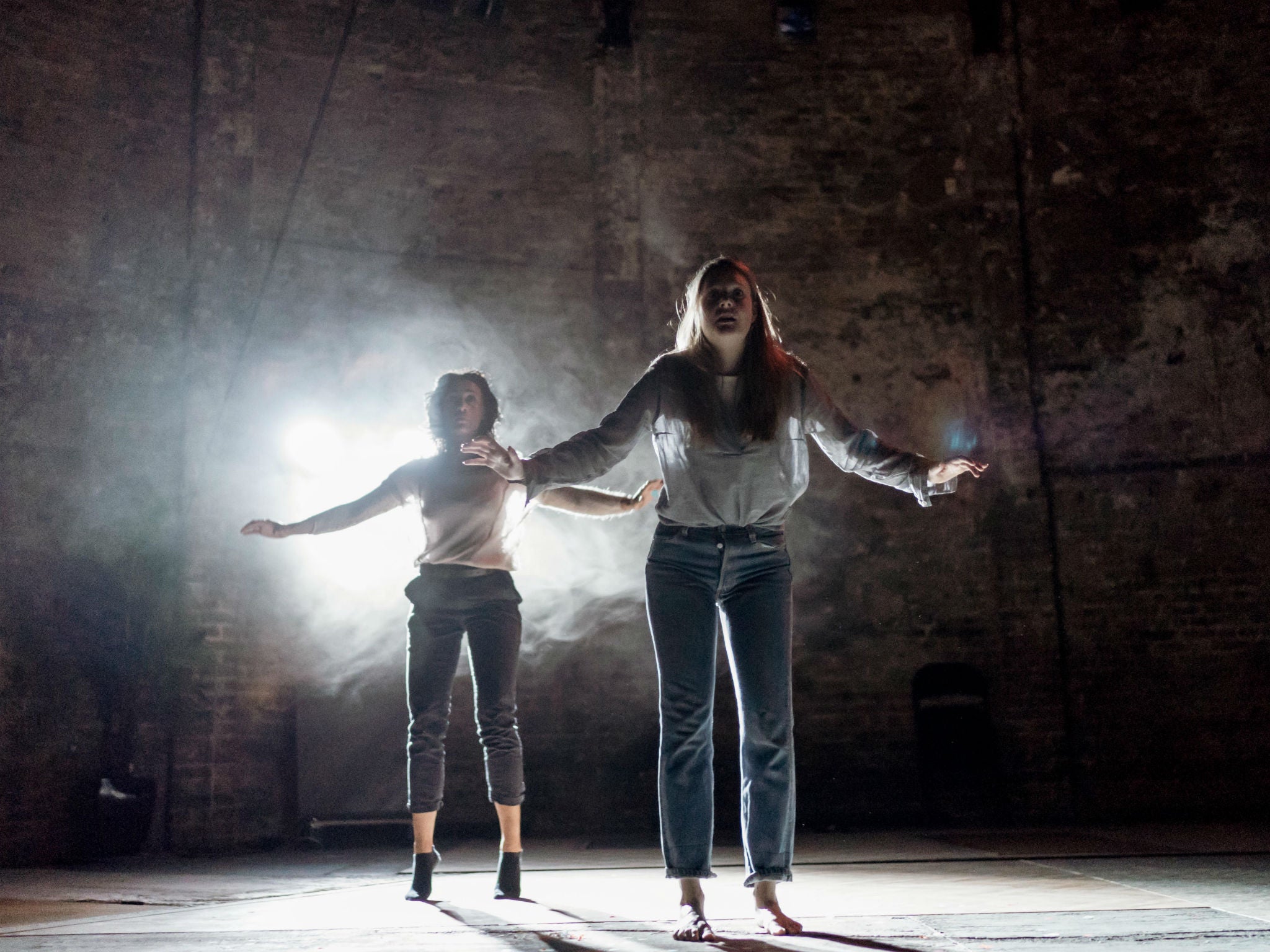The Writer, The Almeida, London, review: Unflaggingly provocative
Ella Hickson's tricksy play is handled with witty aplomb in Blanche McIntyre's superbly acted production

Your support helps us to tell the story
From reproductive rights to climate change to Big Tech, The Independent is on the ground when the story is developing. Whether it's investigating the financials of Elon Musk's pro-Trump PAC or producing our latest documentary, 'The A Word', which shines a light on the American women fighting for reproductive rights, we know how important it is to parse out the facts from the messaging.
At such a critical moment in US history, we need reporters on the ground. Your donation allows us to keep sending journalists to speak to both sides of the story.
The Independent is trusted by Americans across the entire political spectrum. And unlike many other quality news outlets, we choose not to lock Americans out of our reporting and analysis with paywalls. We believe quality journalism should be available to everyone, paid for by those who can afford it.
Your support makes all the difference.To say that Ella Hickson’s new play goes for broke would be something of an understatement. It’s unflaggingly provocative and sometimes irritating; meta-theatrical to a fault and never for a moment mealy-mouthed.
The subjects are gender and power, and the dangers of treating art as product. It kicks off with a fierce encounter between a director (Sam West) and a young woman (Lara Rossi) who erupts with anger about the play she has just seen. “I can’t remember the last time I watched a thing that looked even half alive,” she declares, decrying the director as a “good-night-out kinda guy” and the show a tired, tawdry orgy of sexist imbalance.
He’s aroused by the commercial potential of her rage and suggests a writing commission. But it turns out that they have met before in her student days when he made a pass at her, just after he had praised her first play and offered her a berth at his theatre.
“I wanted to get that job because I was talented, not because I was f***able,” she says. “You can be both,” he insists. At which point, members of the audience may feel they have their bearings: this is going to be a play about the politics of the #MeToo era.
But the piece has a tricksy, self-deconstructing format – handled with witty aplomb in Blanche McIntyre’s superbly acted production – that jerks us into rethinking each of the previous scenes. This enables Hickson to add ever more layers and to explore the question of whether improving the status of female writers in the theatre will require a more fluid approach to form than “the intellectual back and forth” of patriarchy, as she sees it.
There’s an amusingly awkward Q&A in which Romola Garai plays the nervous author of the first scene – a work in progress, it emerges, that is critiqued by her not exactly supportive director (Michael Gould). He feels that it is too much of a rant and desperately needs rigour and logic.
On then to a half-finished scene in which Garai and West are a couple who, pausing only to have a noisy shag behind the new, plastic-wrapped sofa, wrangle over whether she should accept a £40k film offer for her play. She protests that it would feel “like letting strangers do plastic surgery to your unborn child to make it more f***able”. A shockingly real baby is later handed in from the wings to frighten her with the thought that she must have inadvertently become a mother: “That child belongs to the woman in the wings. That child is being paid to be here.”
It says a lot for the sense of idealistic integrity that shines from Garai’s performance that respect for her character of the writer and her mission to change the world survive the boyfriend’s abrasive counter-arguments and the farce of his upending a pot of cassoulet and sweet potato over her computer. A real pity, then, that the mythic monologue in which she gives unfettered expression to the intuitive form she hankers for is so embarrassingly over-written. It involves Semele and finding freedom in a forest in a same-sex relationship in murky light, with distended shadows.
Does Hickson think this sequence is good? I’m afraid that I thought it played into the hands of the director (“it’s atmospheric but I’m not sure it is doing anything”) who wants her to develop the relationship in the first scene and give him a “real” ending.
I’m happy to say, though, that she doesn’t take his advice. The conclusion we see is an upmarket, lesbian equivalent of the scene with the boyfriend – the writer and another woman eating a takeaway and having sex on the sofa, once with and once without a large dildo. It’s funny and moving in its matter-of-factness – like a heartening shrug.
You’re impressed by Hickson’s furious commitment, even as you wonder about some of the detail. Are logic and intuition as gendered as she makes out? Surely it’s the work that’s important, not how happy you feel creating it? It’s to the credit of the piece that it will divide audiences.
To 26 May (almeida.co.uk)
Join our commenting forum
Join thought-provoking conversations, follow other Independent readers and see their replies
Comments